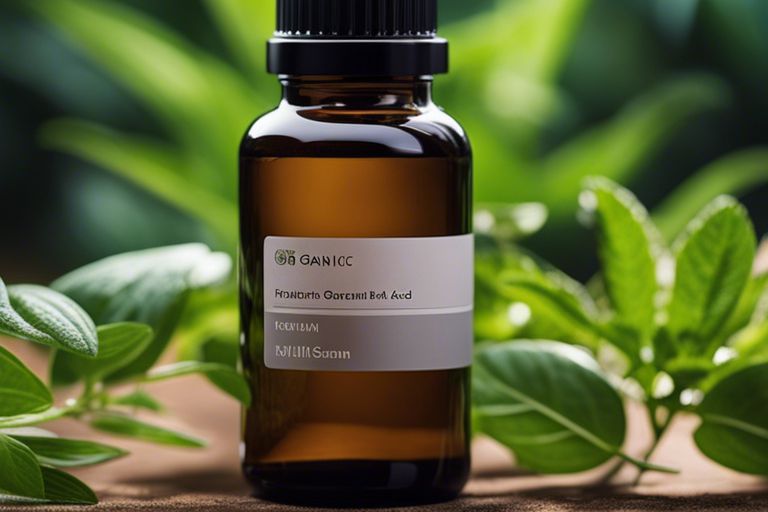Indeed, many people are unaware of the incredible benefits of fulvic acid, a natural compound found in soil, plants, and water. This powerful substance is packed with essential minerals, antioxidants, and electrolytes that can have a profound impact on overall health and wellness. Fulvic acid has been shown to improve digestion, boost nutrient absorption, and support immune function, making it a valuable addition to any diet. However, it’s important to be cautious when purchasing fulvic acid supplements, as they are not all created equal and can potentially contain harmful impurities. In this blog post, we will explore the potential benefits and risks of fulvic acid and provide valuable insight into whether or not it is a good choice for you.
Understanding Fulvic Acid
For those unfamiliar with fulvic acid, it is a naturally occurring substance that is gaining attention for its potential health benefits. Derived from humic substances found in soil, fulvic acid is known for its unique chemical composition and ability to interact with other compounds.
Chemical Composition
An essential aspect of understanding fulvic acid is its chemical composition. Fulvic acid is a complex mixture of various molecules, including fulvic acid, humic acid, and other organic compounds. It is formed through the decomposition of organic matter and the action of microorganisms.
This complex mixture gives fulvic acid its unique properties, including its ability to chelate minerals, enhance nutrient absorption, and act as a powerful antioxidant.
Natural Sources
Natural sources of fulvic acid include soil, peat, coal, and bodies of water such as lakes and rivers. These sources contain organic matter that undergoes a natural process of decomposition, resulting in the formation of fulvic acid.
Plus, fulvic acid can also be found in certain food sources such as fruits, vegetables, and traditional herbal remedies.
These natural sources provide a sustainable and eco-friendly way to obtain fulvic acid for potential health benefits.
Health Benefits of Fulvic Acid
While fulvic acid has been used for centuries in traditional medicine, its health benefits are gaining more attention in the modern world. This powerful substance is known for its ability to improve nutrient absorption, support the immune system, reduce inflammation, and potentially offer cognitive benefits.
Nutrient Absorption and Digestive Health
On a cellular level, fulvic acid can enhance the absorption of essential nutrients, such as minerals and antioxidants, into the body. It also plays a role in maintaining digestive health by promoting a balanced gut microbiome and supporting the body’s natural detoxification processes.
Immune System Support
Fulvic acid has been shown to have a positive impact on the immune system by promoting a healthy inflammatory response and supporting the body’s natural defenses against foreign invaders. This can result in a reduced risk of infections and a stronger overall immune function, helping the body stay healthy and resilient.
This natural immune support system can be particularly beneficial for individuals dealing with chronic stress or illness, as it can help alleviate the burden on the body’s immune resources and promote faster recovery.
Antioxidant Activity and Inflammation Reduction
Immune support and inflammation reduction go hand in hand, and fulvic acid is believed to have potent antioxidant properties that can help neutralize harmful free radicals and reduce oxidative stress in the body. By doing so, it can help to protect cells and tissues from damage and promote overall health and well-being.
These properties also make fulvic acid a promising natural solution for managing chronic inflammatory conditions and promoting a more balanced, healthy inflammatory response in the body.
Potential Cognitive Benefits
Absorption of essential nutrients, support for the immune system, and health protection are all factors that can contribute to potential cognitive benefits of fulvic acid. By supporting overall well-being and reducing oxidative stress and inflammation in the body, fulvic acid may also play a role in promoting cognitive function and mental clarity.
More research is needed to fully understand the extent of fulvic acid‘s cognitive benefits, but early studies suggest its potential in supporting brain health and cognitive function.
Safety and Side Effects
Now, let’s delve into the safety and potential side effects of fulvic acid. While fulvic acid is generally considered safe for most people when taken in appropriate doses, it’s important to be aware of potential side effects and interactions with medications.
Recommended Dosages
The recommended dosages of fulvic acid can vary depending on the specific product and the reason for use. The typical dosage for oral supplementation ranges from 100-200 milligrams per day. It’s important to follow the dosage instructions provided by the manufacturer or a healthcare professional to ensure the safe and effective use of fulvic acid.
Possible Adverse Reactions
Any possible adverse reactions to fulvic acid are usually mild and may include digestive issues such as diarrhea, nausea, or stomach discomfort. In rare cases, some individuals may experience allergic reactions. If you experience any adverse reactions while taking fulvic acid, it’s important to discontinue use and seek medical attention.
Side effects, while uncommon, should be monitored closely, and any concerns should be addressed with a healthcare professional. It’s important to be aware of the potential for drug interactions, especially if you are taking medications for pre-existing health conditions.

Conclusion
Ultimately, there is evidence to suggest that fulvic acid may provide a range of health benefits. While further research is needed to fully understand its effects, it has shown potential in improving gut health, increasing nutrient absorption, and potentially even acting as an antioxidant. It is important to consult with a healthcare professional before adding fulvic acid supplements to your routine, as individual needs and potential interactions with other medications or conditions should be taken into consideration. For more information on the uses and potential side effects of fulvic acid, visit FULVIC ACID – Uses, Side Effects, and More.




